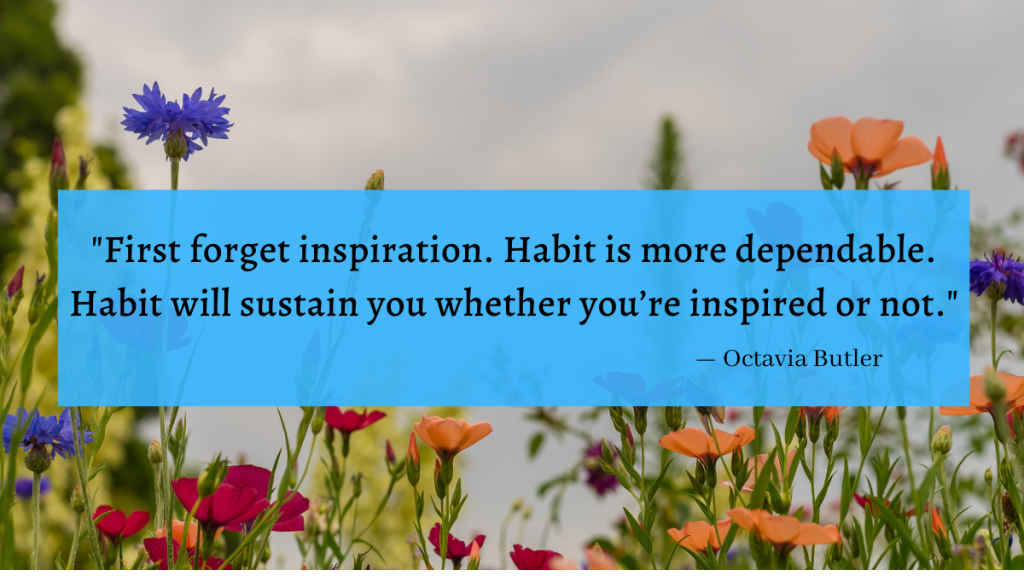After writing about high-functioning anxiety earlier this week, I started thinking about habits. Over the course of our lives, we develop habits of all kinds. They can be good for us, they can be bad for us. They can be the thing we need to get through the day, or they can be something we do absentmindedly before bed. Regardless of where they originated from, habits form a major aspect of our day-to-day lives. And sometimes, without meaning to or realizing it, we can fall into habits without realizing it. This isn’t always a bad thing but when it comes to our mental health, it is something we should be aware of.
In psychology, the process of creating and maintaining habits is known as habit formation. From Psychology Today:
“Habit formation is the process by which behaviors become automatic. Habits can form without a person intending to acquire them, but they can also be deliberately cultivated—or eliminated—to better suit one’s personal goals.”
Psychology Today
Habits don’t happen overnight. They are formed when, day after day, we repeat actions that become easier for our brain to work through over time. Simply put, our brains are trying to make things as easy for us as possible. Eventually, we barely think about these habits, even while we’re doing them.
But habits aren’t always positive. Negative habits are extremely prevalent, and many of us pick them up without realizing it. Sometimes, these habits are also linked to our mental health. People can pick up coping mechanisms for mental illness that aren’t good for them, and those habits can grow stronger over time. It can get to a point where you don’t even remember where this habit came from, but it’s part of your daily life.
Please don’t think I’m coming here to talk down on habits and habit formation. Habits are a good thing for people to work on, and they can be transformative in the way we lead our lives. But we can fall into bad habits as a way of coping with our mental health challenges, and I feel that’s something people should be aware of. Mental illness can put us in a vulnerable place, and the way people deal with that isn’t always healthy. Being aware of a coping mechanism turning into a habit is essential for our mental health.
When it comes to habit formation, awareness can make a world of difference. We can certainly form habits without realizing it but once we do become aware, we need to analyze these habits. We need to figure out if they are helping us live better lives, or if they’re detrimental to our mental health. Forming good habits is one of the most important things we can do for our mental wellness and sometimes, that means rooting out the bad stuff to make way for the good.
